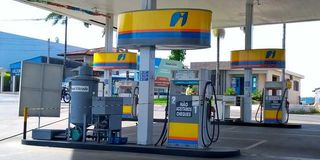What happens if I put adulterated fuel in my car?

A fuel station.
To what extent do retailers adulterate fuel, and how can motorists be sure to avoid this danger? What happens to the car if its fuel is dirty? Tamsin
Each car engine is designed to run on a particular type, grade and purity of fuel and anything other than that is not good for it. Depending on what the “other” is, the “not good” can range from negligible to serious; the consequences can range from almost immediate engine dysfunction to progressive long-term deterioration.
Older engine designs are generally more tolerant of “iffy” fuel quality, because they are lower compression, and lower revving, are less powerful, and do not burn even pure fuel as efficiently. They were more prone to long-term deterioration (and periodically needed to be “de-coked”) even if they used clean fuel.
The term “adulterated” refers to the usually deliberate mixing of different fuel types – commonly adding kerosene (which is cheaper because it incurs less tax) to petrol. “Dirty” usually refers to pure fuel types which have been polluted by poor management during transport and delivery, poor storage hygiene, or defective filtering at the forecourt pump. The degree of adulteration or other impurity can vary in degree from minimal to major.
These problems are least likely at the forecourts of well-established brands (where even one negative report can affect the entire network’s reputation and customer reaction). Because of their size and popularity, they tend to have a rapid turnover of fresh stock (which reduces the chances of time-critical pollution – like moisture condensation and rust debris in storage tanks), and are obliged to ensure several levels of quality control throughout the supply chain from source to pump.
That does not mean they are all paragons of virtue, nor does it condemn all smaller independent suppliers. However, brand repute and rapid turnover reduce the likelihood of misconduct or mistakes.
Kenya did go through a period of several years when adulteration was rife, especially but not only at backstreet depots. There were even cases where large quantities of fuel were stored in “ponds” in the basements of blocks of flats! From the lack of such reports these days, it would seem effective action to prevent that has been taken.
There have also been periods where the measure of fuel quantity at the pump has been dubious at some outlets. That, which is a weights-and-measures issue, is not overt right now.


